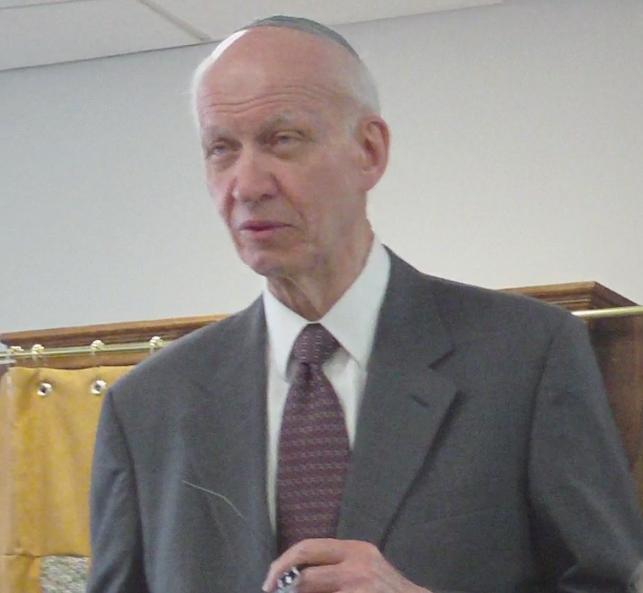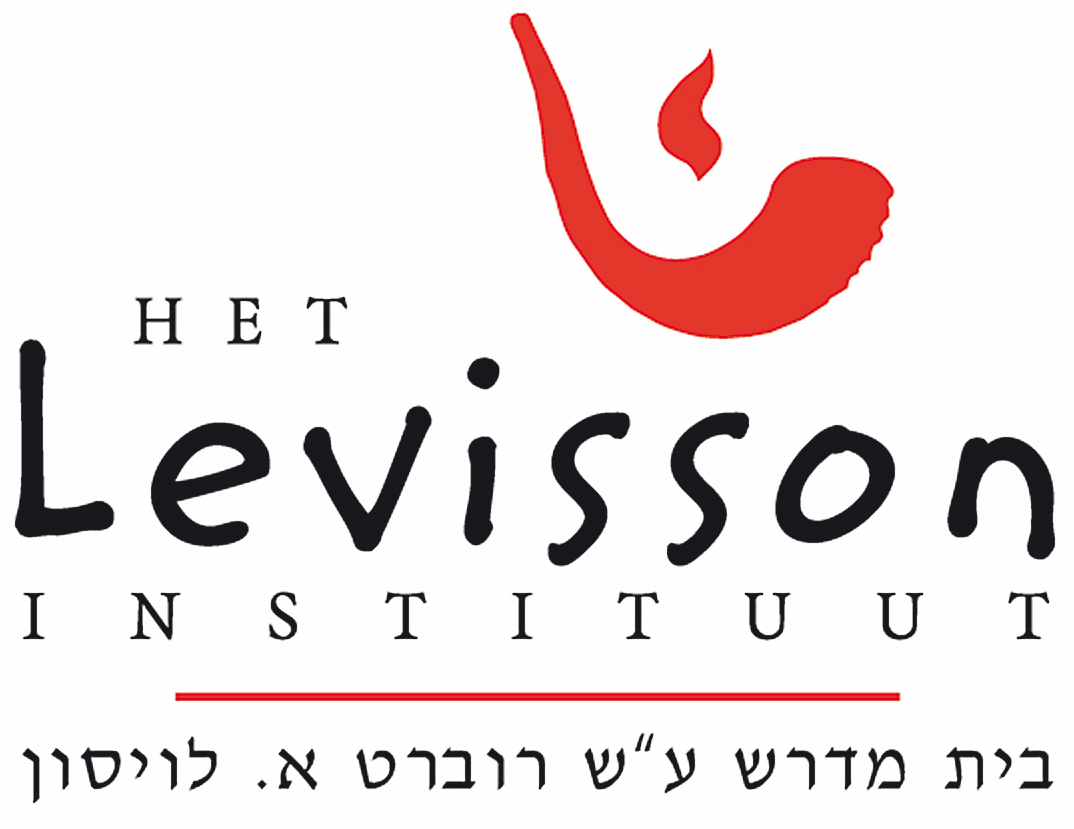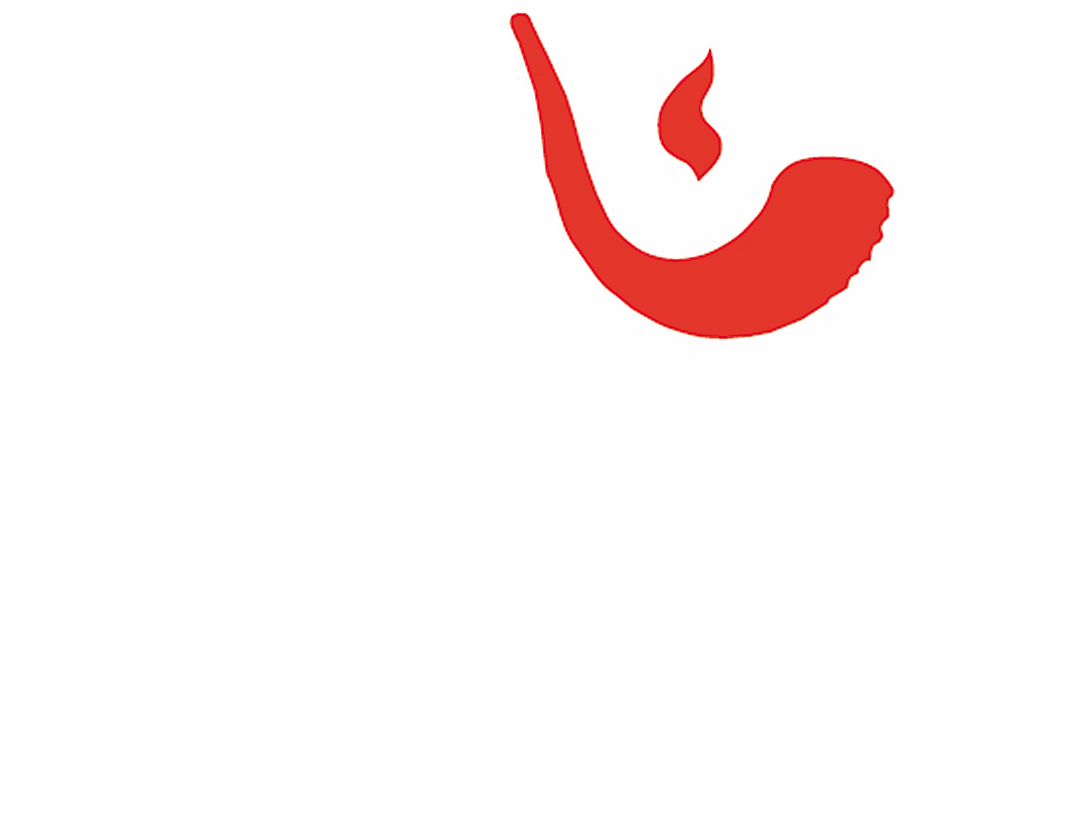David Hartman

Rabbi dr. David Hartman (1931-2013), founder of the Shalom Hartman Institute in Jerusalem, was a a leading contemporary Jewish philosopher and publicist. He had a doctorate in philosophy from McGill University and was ordained as a rabbi by Yeshiva University.
David Hartman founded Shalom Hartman Institute in 1976. He received the Avi Chai Prize in 2000 and the Guardian of Jerusalem Prize on Shalom Hartman Institute’s 25th anniversary. He is the recipient of numerous honorary doctorates, along with The Hebrew University of Jerusalem’s Samuel Rothberg Prize for Jewish Education.
His publication A Living Covenant won the National Jewish Book Award in 1986.
See also his biography and about the Shalom Hartman Institute, and the website of the Shalom Hartman Institute.
Below you can read the article Auschwitz or Sinai?
Editor’s Note: This powerful and oft-cited essay from 1982 remains appropriate today and was posted again on 5 October 2009 and also in advance of Yom Hashoah in Israel, 12 April 2010.
Auschwitz or Sinai?
There is a healthy spirit of serious self-evaluation and criticism in the land today. The triumphant ecstasy of the Six Day War no longer dominates the consciousness of many Israelis.
In retrospect, the jubilant sense of victory created by the Six Day War was a mixed blessing. Besides the positive effect of awakening the Jewish world to the centrality and importance of Israel, it also gave rise to national self-adulation and hubris.
Widespread in Israeli society today are a sober appreciation of political and moral complexities and a serious sense of responsibility for the unintended consequences of our actions. These elements made themselves felt during the recent war and are positive and hopeful signs of a mature orientation to life.
The fact that our country tolerates serious and often heated disagreement is a sign of its internal health and strength. There is no doubt that Israeli society contains the vital moral forces needed for regeneration and renewal.
In the Judaic tradition, belief in renewal resulted from respect for mature and intelligent self-criticism. Heshbon ha-nefesh (self-examination) is a necessary condition for teshuva (repentance and renewal). Honesty to oneself and to others is a precondition for authentic human growth and creativity. Self-praise and adulation are deceptive and lead to moral sloppiness and to reveling in the status quo. Breakthroughs in the human spirit are facilitated by the courage to admit to moral failures.
The belief in the power of renewal is a central motif in Judaism. Such concepts as psychological determinism, historical inevitability and fatalism are alien to our tradition’s understanding of human action. Belief in radical freedom, in an open future, in surprise and novelty is crucial element of Judaism’s vitality and perseverance.
There is, however, a fundamental difference between the yearning for a new future that reflects wishful romantic dreams and the judicious hope that has been tested by suffering, failure and tragedy.
Although we are a young nation, the intensity of our political reality and our long historical memories provide us with the experience and insights necessary for finding new and mature directions for our society.
One of the fundamental issues facing the new spirit of maturity in Israel is: Should Auschwitz or Sinai be the orienting category shaping our understanding of the rebirth of the State of Israel? There are important differences resulting from the relative emphasis we place on these two models.
In the 20th century we have again become a traumatized nation. The ugly demonic forces of anti-Semitism have horrified our sensibilities. We can never forget the destruction of millions of Jews in World War II. Many, therefore, justify and interpret the significance of our rebirth in terms of Jewish suffering and persecution.
One often hears in speeches in the Knesset and at the UJA fund-raising dinners phrases such as: “Never again will we be vulnerable. Never again will we expose our lives to the ugly political forces in the world. Our powerful army has eliminated the need to beg for pity and compassion from the nations of the world”.
While I respect and share in the anguish expressed in these sentiments, I believe it is destructive to make the Holocaust the dominant organizing category of modern Jewish history and of our national renewal and rebirth. It is both politically and morally dangerous for our nation to perceive itself essentially as the suffering remnant of the Holocaust. It is childish and often vulgar to attempt to demonstrate how the Jewish people’s suffering is unique in history.
Our bodies have painfully tasted man’s indifference and inhumanity to his fellow man. We have witnessed in our own flesh the moral evil present in human society. But this should not tempt us to become morally arrogant. Our suffering should not lead us to self-righteous postures, but to an increased sensitivity about all human suffering.
Nonetheless, there are individuals obsessed with the trauma of the Holocaust who proclaim that no one can judge the Jewish people. “No nation has the right to call us to moral judgment. We need not take the moral criticism of the world seriously because the uniqueness of our suffering places us above the moral judgment of an immoral world”.
Those who make such statements judge others, but refuse to be judged. In so doing, a basic Judaic principle is violated: no one may judge if he refuses to be judged himself.
Although it is right to appreciate the dignity that comes with power and statehood, with freedom from the inconsistent and fragile goodwill of the nations of the world, it is a serious mistake to allow the trauma of Jewish suffering to be the exclusive frame of reference for understanding our national renaissance.
Israel is not only a response to modern anti-Semitism, but is above all a modern expression of the eternal Sinai covenant that has shaped Jewish consciousness throughout the millennia. It was not Hitler who brought us back to Zion, but rather belief in the eternal validity of the Sinai covenant. One need not visit Yad Vashem in order to understand our love for Jerusalem. It is dangerous to our growth as a healthy people if the memory of Auschwitz becomes a substitute for Sinai.
The model of Sinai awakens the Jewish people to the awesome responsibility of becoming a holy people. At Sinai, we discover the absolute demand of God; we discover who we are by what we do. Sinai calls us to action, to moral awakening, to living constantly with challenges of building a moral and just society which mirrors the kingdom of God in history. Sinai creates humility and openness to the demands of self-transcendence. In this respect, it is the antithesis of the moral narcissism that can result from suffering and from viewing oneself as a victim.
The centrality of mitzvah in Judaism shatters egocentricity and demands of the Jew that he judge himself by the way he acts and not by mystical myths regarding the purity or uniqueness of the Jewish soul. Na’aseh ve-nishma (we will do and we will understand) was the response of our people at Sinai. We understand ourselves through our doing.
Sinai does not tell us about the moral purity of the Jewish nation, but about the significance of aspiring to live by the commandments. Sinai permanently exposes the Jewish people to prophetic aspirations and judgments. Jews were never frightened for the failure to implement covenantal responsibilities.
Immediately after the account of the revelation at Sinai, we are reminded of Israel’s unfaithfulness to the covenant in the vivid description of the Golden Calf incident. Sinai teaches us that there is no meaning to election without judgment – there are no privileges without demands.
Sinai requires of the Jew that he believe in the possibility of integrating the moral seriousness of the prophet with the realism and political judgment of the statesman. Politics and morality were united when Israel was born as a nation at Sinai. Sinai prohibits the Jewish people from ever abandoning the effort of creating a shared moral language with the nations of the world.
The rebirth of Israel can be viewed as a return to the fullness of the Sinai covenant – to Judaism as a way of life. The moral and spiritual aspirations of the Jewish tradition were not meant to be realized in Sabbath sermons or by messianic dreamers who wait passively on the margins of society for redemption to break miraculously into history. Torah study is not a substitute for actual life, nor are prayer and the synagogue escapes from the ambiguities and complexities of political life.
The Jewish world will have to learn that the synagogue is no longer the exclusive defining framework for Jewish communal life. Moral seriousness and political maturity and wisdom must come to our nation if we are to be judged by the way we struggle to integrate the Sinai covenant with the complexities of political realities.
The establishment of the modern State of Israel has removed us from the insulated world of the ghetto and has exposed Judaism and the Jewish people to the judgment of the world. We can no longer hide our weaknesses and petty failings. We live in total exposure.
We must therefore define who we are by what we do and not by any obsession with the long and noble history of Jewish suffering. In coming back to our land and rebuilding our nation, we have chosen to give greater moral weight to our actions in the present than to noble dreams of the future or to the memories of our heroic past.
In choosing to act in the 20th century rather than wait for perfect messianic conditions, we permanently run the risk of making serious mistakes in our moral and political judgments. We must, therefore, respond maturely to anyone who is critical of our shortcomings. The time has come for us to free ourselves from the exaggerated rhetoric of moral superiority (“no one can teach us morality”) and to face the awesome task implicit in the Sinai covenant.
The prophets teach us that the state has only instrumental value for the purpose of embodying the covenantal demands of Judaism. When nationalism becomes an absolute value for Jews and political and military judgments are not related to the larger purpose of our national renaissance, we can no longer claim to represent the Judaic tradition. Rather, we have ironically become assimilated while speaking Hebrew in our own country.
In being open and appreciative of criticism, regardless of its source, we demonstrate that we seek to walk humbly and responsibly before the Lord of all creation, who demands that Israel bear witness to the demands of justice within an imperfect world.
It is important to remember that the Jewish people did not go from the suffering conditions of Egypt directly into the land. We first went to Sinai, made a covenant with God, and pledged absolute allegiance to the commandments. We spent years in the desert casting off the mantle of the suffering slave.
After we overcome the humiliating memory of slavery and persecution and understood that we were called to bear witness to God’s kingdom in history, only than did we enter the land. The memory of suffering in Egypt was absorbed by the conventional normative demands of Sinai. We were taught not to focus on suffering outside of its normative and moral implications.
Because of Sinai, Jewish suffering did not create self-pity but moral sensitivity: “And you shall love the stranger because you were strangers in the land of Egypt”.
Auschwitz, like all Jewish suffering of the past, must be absorbed and understood within the normative framework of Sinai. We will mourn forever because of the memory of Auschwitz. We will build a healthy new society because of the memory of Sinai.
Irving Greenberg

Rabbi Irving (Yitz) Greenberg is an American Modern-Orthodox rabbi and historian, who earned a PhD at Harvard University. He is the founder and professor in the department of Jewish studies of the City University of New York. He has also served as the President of the National Jewish Center for Learning and Leadership (Clal). He is married to the Orthodox Jewish feminist writer Blu Greenberg.
Rabbi Irving Greenberg published early in the 1980s three essays that brought about much new and revolutionary thinking. He delineates in clear terms his reading of Jewish history and extrapolates from this his projections for the future of Judaism in a radically and fast changing world. These essays have been bundled and published under the title Perspectives.
Below you will find three links taking you to the essays as pdf-files. They should be regarded and read as one whole. They were published in 1982 by the National Jewish Center for Learning and Leadership (Clal).
Part I: The Third Great Cycle of Jewish History
Part II: Voluntary Covenant
Part III: The Third Era – Power and Politics

